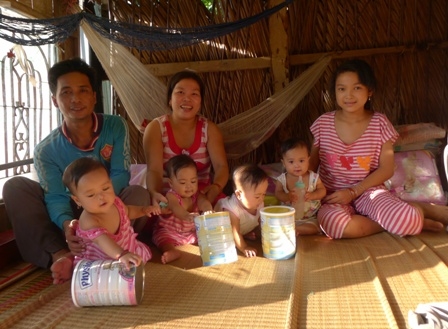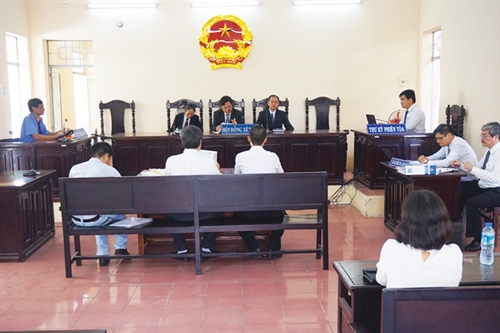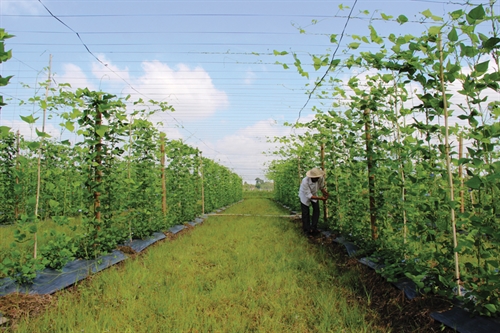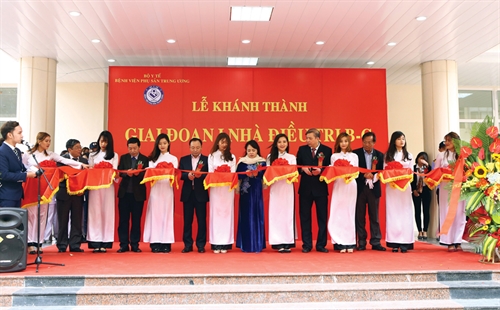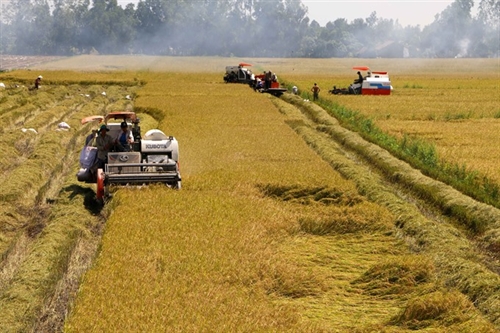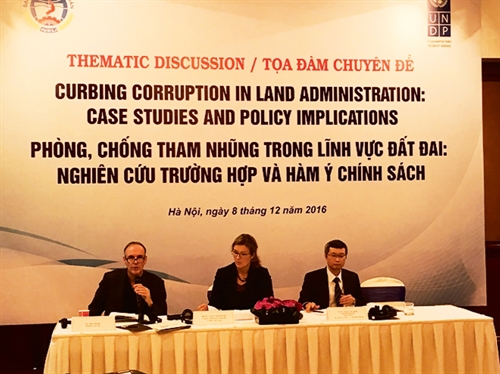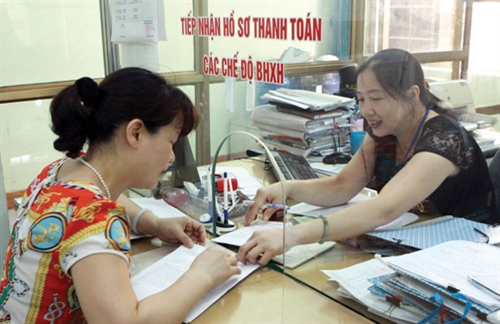At the cabinet meeting on lawmaking held on August 22, Prime Minister Nguyen Xuan Phuc again asked ministries to quickly remove unreasonable or unnecessary business conditions which are costing enterprises dearly and seriously hurting the Government’s efforts to improve the business environment.
At the meeting, the Ministry of Planning and Investment (MPI) reported that business are now facing 4,284 business and investment conditions and requirements in 243 conditional business lines governed in 237 legal documents.
A report on business conditions prepared by the Central Institute for Economic Management (CIEM) reveals that there are 30 conditional business lines in the transport sector but their sub-lines are actually 63. The numbers are respectively 20 and 60 in the finance sector; 16 and 52 in the health sector; 8 and 31 in the banking sector; and 17 and 26 in the construction sector, etc.
Many business conditions, also called sub-licenses, are complex, overlapping or unreasonable, largely confusing businesses in compliance, experts agreed, saying in many cases, businesses are even unable to comply with those regulations. A typical example is the requirement under Government Decree 86 of 2014 for vehicles to have a badge when running even in case they do not operate for commercial purpose. To be granted a badge, an enterprise must possess a transportation business license which, however, will not be granted to an enterprise with foreign capital making up over 51 percent. As a result, many foreign-invested enterprises which have their own car fleet for internal transportation cannot comply with this regulation and become reluctant violators of law.
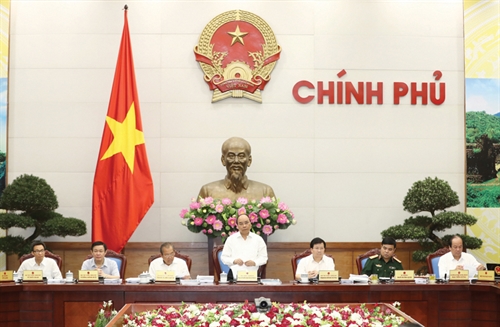 |
| Prime Minister Nguyen Xuan Phuc chairs a cabinet meeting on lawmaking__Photo: Thong Nhat/VNA |
Speaking about irrational business conditions, Cao Minh Truc, a member of the Board of Directors of Empire Group, the investor of the Coco Bay Da Nang project, cited the regulations that require a five-star hotel to have a tennis court under national standards on five-star hotel grading. Truc said there was no reason for her group’s hotel to have a tennis court as it is located near a golf course and its guests mostly play golf. The regulations also say a five-star hotel must have a spa. But, Truc said, legally there is no spa business in Vietnam yet, there is only “massage”. As a result, her hotel had to send staff members who have international spa practitioner certificates to a massage training course to get the required certificate. Such training not only cost businesses more but was irrelevant to spa therapists, Truc said.
Another CIEM report estimated that businesses have to annually spend VND 14.3 trillion (over USD 641 million) and around 28.6 million workdays to comply with specialized management requirements which are scattered in 414 legal documents, including 30 laws and ordinances, 97 decrees and 284 circulars. The number of commodities subject to specialized management hit some 100,000.
The fact that a single commodity item was managed by two or three ministries was consuming businesses a lot of time, energy and cost, Pham Duc Binh, Thanh Binh Joint Stock Company General Director lamented, citing aquatic feeds like fish powder was subject to not only animal quarantine but also aquatic quarantine as well quality inspection by various ministries with numerous papers and formalities.
Dam Dang Sanh, Director of Dam Dang Vinh Enterprise, a dairy product importer in Hanoi, said a dairy product must obtain food safety certificates from both the Ministry of Health and Ministry of Industry and Trade, apart from an animal quarantine certificate from the Ministry of Agriculture and Rural Development. The samples taken for testing to obtain these certificates were expensive, accounting for around 1 percent of the total value of the goods, Sanh said, citing for every 100 boxes of milk products, almost one was used for such testing, let alone testing expenses. This was just for a product with single ingredient, Sanh stressed, saying the testing would be much more complex for a multiple-ingredient product.
To show how sub-licenses could burden businesses, the American Chamber of Commerce in Vietnam (AmCham) gave an example of production of chocolate cakes using 12 imported materials, which means the producer has to apply for 12 import permits with 12 separate dossiers plus a dossier for certification of product quality declaration. In other words, a chocolate cake must “carry on its back” 13 permits. The requirements for import permits and product quality declaration certification were overlapping, AmCham representative Tran Ngoc Han told the Ho Chi Minh City Law daily. When the producer only changed some minor input materials which did not affect the product quality, it still had to apply for a new permit. This increased production costs and delayed production plans of businesses, Han said.
But that was not all. Businesses also had to wait for a long time to get a permit. Under Government Decree 38 of 2012 which details the Law on Food Safety, management authorities must give a reply to an application dossier within 15 working days for ordinary food or 30 working days for micronutrient-fortified food. In many cases, some days before this time limit expires, applicants would receive a request to modify their dossiers, often not only once but many times. And with each modification, this time limit would be re-counted from the beginning, said Nguyen Hoai Nam, Deputy General Secretary of Vietnam Association of Seafood Exporters and Producers.
“Authorities would make requests based on certain standards, often excessive ones,” he said.
Nam attributed this to the absence of clear criteria for appraisal, resulting in arbitrary appraisal decisions based on personal opinions rather than regulations.
To save time, businesses had to hire private services, costing them as much as VND 900 billion (roughly USD 40 million) each year, Nam told the Ho Chi Minh City Law daily.
To address the problem, CIEM Deputy Head Phan Duc Hieu recommended establishing an independent body to remove unreasonable regulations since it would not be easy for management authorities to voluntarily eliminate business conditions, which are regarded as a state management tool.
At the cabinet meeting on lawmaking, the Ministry of Planning and Investment (MPI) suggested eliminating 1,930 irrelevant business conditions and requirements, including 1,336 conditions on production capacity; 302 on finance; 120 on business modes; 85 on business locations; and 80 on planning.
The Ministry also recommended removing all conditions on personnel, except in some professions requiring high qualifications and experiences such as doctor or auditor.
It proposed the Government to shift from pre-registration inspection to post-registration inspection management and to risk-based management to increase effectiveness and reduce costs, allowing businesses themselves to examine products and declare their regulation conformity.
The Ministry suggested adopting business management standards and practices of the Organization of Economic Cooperation and Development to replace pre-inspection conditions with safety standards and regulations (occupational safety, fire and explosion safety, product and goods quality, etc.) and to issue detailed guidelines for compliance.
It also recommended establishing an information system on businesses and their products, which provides information on businesses’ law compliance and product origin traceability.
The Vietnam Chamber of Commerce and Industry (VCCI) also proposed annulling 56 conditions and modifying another four in the industry and trade sector. The numbers are respectively 27 and 4 in the transport sector; and 13 and 5 in the science and technology sector.
Making conclusions at the meeting, Prime Minister Phuc asked ministries to study the VCCI’s and CIEM’s proposals to review the existing business conditions to remove, reduce or revise irrelevant or unnecessary ones. Ministries should work closely with MPI and VCCI and consult businesses and investors to ensure consistency in the proposed amendments. Such revision should be done along with the revision of investment and business laws, the Prime Minister said, suggesting the issuance of a government decree or prime minister directive to control investment and business conditions.- (VLLF)
